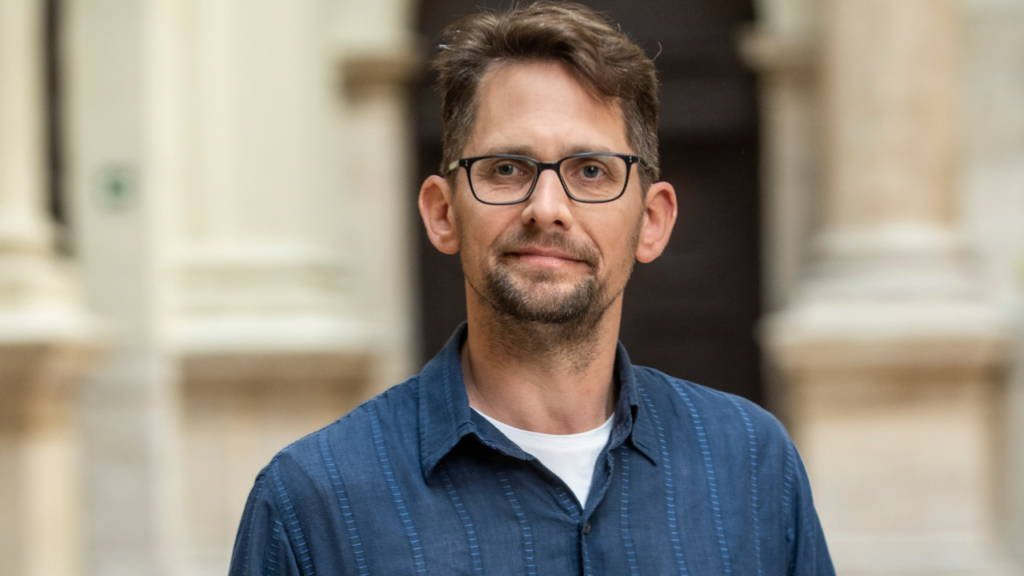CIAS Inn: “A new environment is useful because new routines need to be established”

We have launched a new series: focusing on scientists coming to the international research centre of CIAS, with the aim of integrating them more fully into our university community during their stay.
“It is simply a great opportunity to focus on research for ten months”, says Andreas Orland from the international research centre of the Corvinus Institute for Advanced Studies (CIAS). Andreas Orland learnt about the opportunity from a teacher at Corvinus.
According to the researcher, he now has much more time in Budapest to focus on his research. “Not having teaching commitments helps you be productive. But the new environment is also useful because you need to establish new routines.”
Andreas Orland works in behavioural economics. He usually applies game theory to test the assumptions of the mathematical model used. The research also involves participants, and experimental and behavioural economics also use and incorporate psychology. He worked as a researcher at the University of Potsdam and as head of PLEx (Potsdam Laboratory for Economic Experiments).
Within CIAS, he is investigating what happens when several actors participate in a particular auction format. Are they ready to reduce prices by cooperation? Or do they drive prices up by competing?
He regularly meets other researchers working in CIAS, going into the office almost every day. In addition to his research, he has an overview of academic life at Corvinus University, attends workshops and seminars, and finds many lectures interesting.
“Researchers become visible to the international community when they publish in a well-known and recognised academic journal or present their research at international conferences”, says Andreas Orland. He believes that universities can provide an environment that encourages researchers to gain visibility by providing the resources.
He suggests that another way to build an international presence is to organise workshops and seminars with the participation of international researchers. The conditions for this can also be created by providing incentives and financial resources.
“It’s simple, I really like the city”, he says when asked how he feels about Budapest. “I still have a lot to discover.” The city centre, with its magnificent buildings, is magnificent. There are many excellent restaurants and bars to visit, as well as great museums. I still have to attend the Opera and concerts.” After the first two months, he still felt that he had only just begun to discover the city, and that it still had many surprises in store.
He has grown to like many places, many different phenomena. “I like the markets that are slightly further away from the city centre”, says Andreas Orland. “You can buy things there that you can’t find in Germany.”
When he is not working at the University or exploring the treasures of Budapest, the CIAS researcher likes to cook or play sports, for example he runs on Margaret Island. He is never weary of boredom, as he believes that in Budapest it is easy to find something useful or interesting at any time of the day.